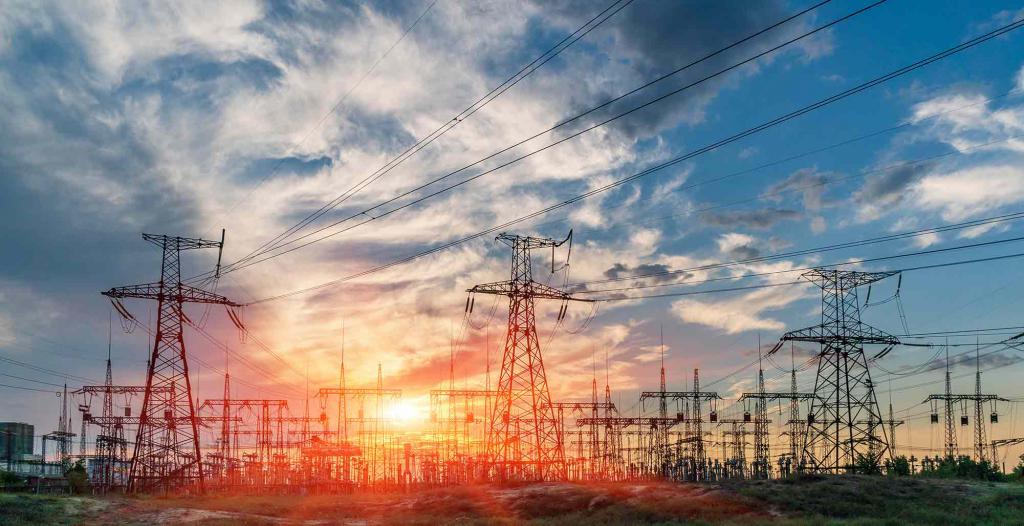- The Polish Electricity Committee would like to emphasize the great importance of the XXIV Session of the Conference of the Parties to the United Nations Framework Convention on Climate Change (COP 24), which will be held on 3-14.12.2018. Katowice. Bearing in mind the crucial negotiations on the regulatory framework for the structure of the European Union's electricity market planned for the second half of the year, the upcoming Climate Summit will provide a special opportunity to present in a global perspective the current achievements in climate protection, both in the European Union as a whole and in Poland - the host of the conference.
- PKEE members contribute to the implementation of the objectives of the Paris Agreement and diversify the fuel structure for electricity generation in Poland - the share of coal in the national energy mix has significantly decreased since 2008, i.e. the date of adoption and the climate package. Currently, the share of coal in the installed capacity in the Polish power grid is about 71% compared to about 83% in 2008. In parallel, the share of RES has increased from 4% to 20% during the same period.
- In addition, according to a statement by the Ministry of Energy, No new coal units are planned to be built in Poland after 2025. At the same time, wind farm projects are being developed in the Baltic Sea, where we estimate the potential for new generation capacity in the Polish zone at 6-8 GW. The construction of a zero-emission nuclear power plant also remains a strategic option. Natural gas-based energy projects are also intensively pursued, both in terms of electricity and heat.
- PKEE supports the progressive electrification of the EU economy in areas not covered by the EU ETS, including energy-intensive industries, as well as transport and construction. At the same time, we will strive to minimise the environmental impact of the energy sector by 2050 by gradually transforming the fuel mix towards low emissions. Currently PKEE participates in developed by EURELECTRIC analysis of the potential for CO₂ emissions reduction in the EU energy sector by 2050 which will present the specificity of Poland.
- The updated mid-century strategy will not avoid discrepancies between forecasts and reality. The cost and availability of RES technologies has changed dramatically even from just 2011 when the previous roadmap was developed, hence the current assumptions will definitely change in the coming decades. To take the example of wind and photovoltaic prices - these solutions are now less expensive than assumed a decade ago, and the clean technologies critical to cost-effective decarbonisation - including CCS and CCU - are not commercialising the market.
- In the context of the electrification of the economy, one of the main themes of the December conference will be development of electromobility. Poland has a chance to become one of the leaders in this process. During the COP in Katowice we are also planning an accompanying event concerning climate funds and just transformation.
- PKEE supports the establishment of Fair Energy Transition Fund in progress work on the new post-2020 EU multiannual financial framework. A complementary solution is an increase in resources e.g. for energy in the existing structural funds for the period 2021-2027 - particularly under the Cohesion Fund, to enable a fair energy transition for coal-dependent regions and the modernisation of the energy sector towards low emissions. Notwithstanding the new budgetary framework, it will also be important maximising compensation mechanisms under the reformed EU ETS . It should be remembered that, according to analyses by PKEE, low-emission investments will cost the Polish power sector more thanEUR 150 billion by 2050 (over PLN 600 billion).
- EU contribution to the 2030 Paris Agreement. Should remain unchanged at this stage. The adoption of the Winter Package legislation, and thus the architecture of the Energy Union, completes the EU proposal. The consensus reached at EU level on climate ambitions for 40% CO₂ reductions by 2030. contributed to the rapid ratification of the Paris Agreement. Above all, what is needed is an assessment of the solutions that have just been adopted; therefore Any declarations on further tightening of climate targets, even before COP24 or during the conference itself, would in our opinion be premature. In accordance with Decision 1 / CP.21, Parties may recommit their nationally determined contributions until 2030.
- The EU ETS Directive itself provides for a review of ambition in the context of progress in implementing the Paris Agreement and the development of carbon markets in other major economies. It is important to underline that CO₂ price has tripled over the past year from approx. 5 EUR / t CO₂ to approx. 15 EUR / t CO₂, which causes a significant burden on the production assets in Poland and, consequently, on final consumers.
- It is important that the EU's emission reduction ambitions are realised corresponding actions of other large developed economies, but also of emerging economic powers in Asia (China, India). Without their adequate contribution, we will not achieve our climate protection goal, but we will certainly the competitiveness of the European economy will be undermined and we will face carbon leakage and a shift of industrial production outside the EU. Under the Global Transparency Mechanism, efforts to make further reductions should be demonstrated in the context of effort assessment mechanisms, e.g. as% of a country's GDP, and used as a basis for assessing future obligations.
DOWNLOAD FILES

